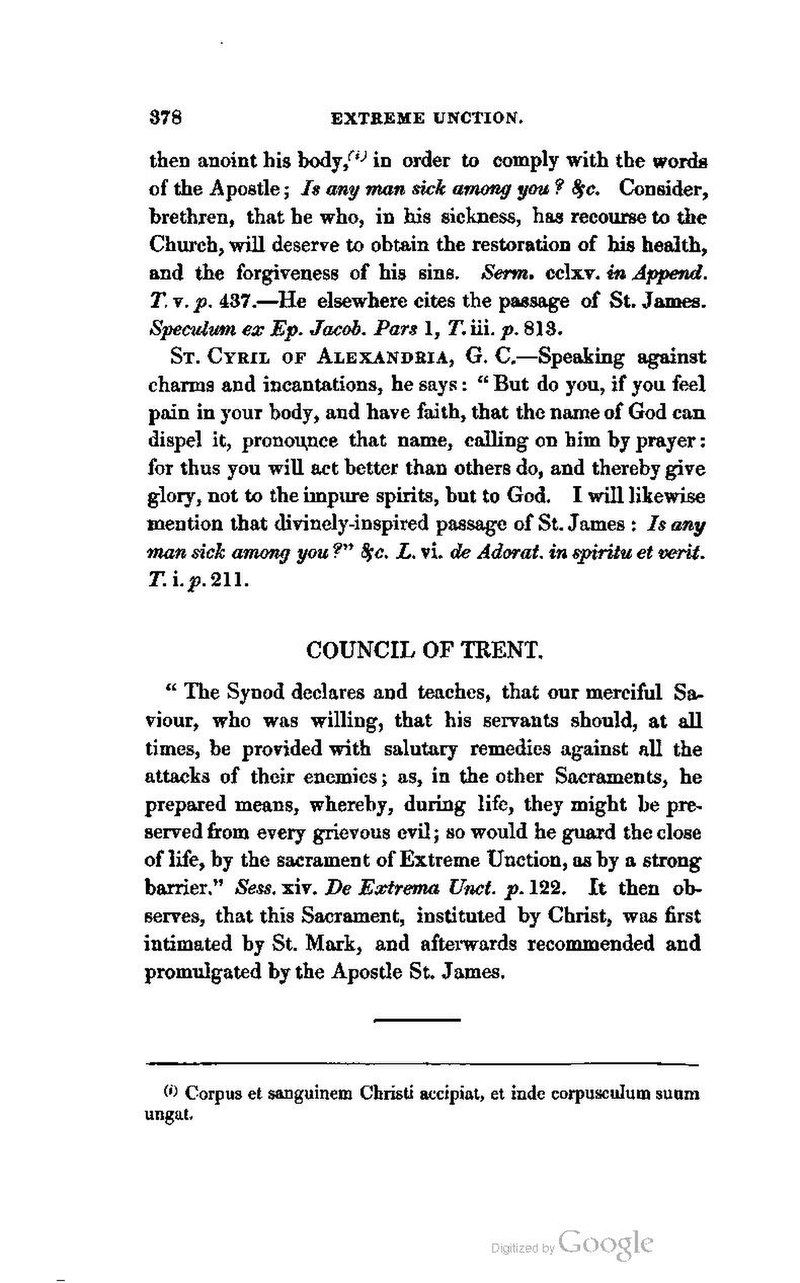then anoint his body, in order to comply with the words of the Apostle; Is any man sick among you ? &c. Consider, brethren, that he who, in his sickness, has recourse to the Church, will deserve to obtain the restoration of his health, and the forgiveness of his sins. Serm. cclxv. in Append. T.v. p. 437.-He elsewhere cites the passage of St. James. Speculum ex Ep. Jacob. Pars 1, T. iii. p. 813.
St. CYRIL OF ALEXANDRIA, G. C.-Speaking against charms and incantations, he says: “But do you, if you feel pain in your body, and have faith, that the name of God can dispel it, pronounce that name, calling on him by prayer: for thus you will act better than others do, and thereby give glory, not to the impure spirits, but to God. I will likewise mention that divinely-inspired passage of St. James : Is any man sick among you ?" &c. L. vi. de Adorat. in spiritu et verit. T.i.p.211.
COUNCIL OF TRENT.
“ The Synod declares and teaches, that our merciful Saviour, who was willing, that his servants should, at all times, be provided with salutary remedies against all the attacks of their enemies; as, in the other Sacraments, he prepared means, whereby, during life, they might be preserved from every grievous evil; so would he guard the close of life, by the sacrament of Extreme Unction, as by a strong barrier.” Sess. xiv. De Extrema Unct. p. 122. It then observes, that this Sacrament, instituted by Christ, was first intimated by St. Mark, and afterwards recommended and promulgated by the Apostle St. James.
